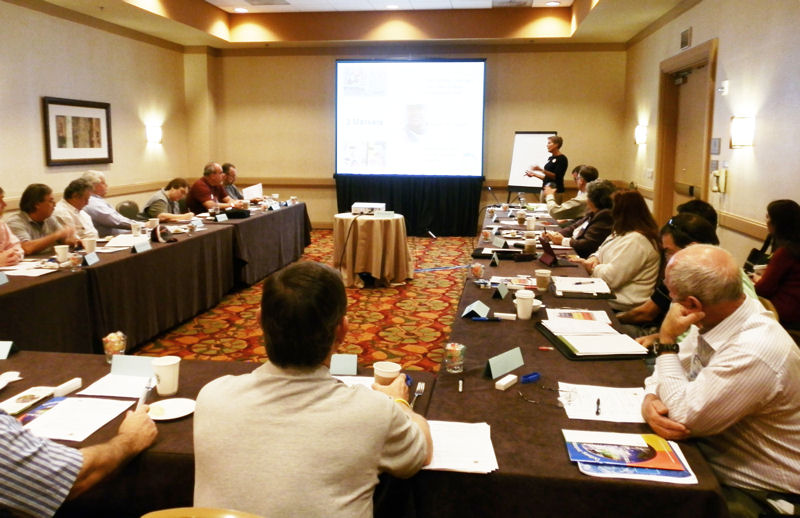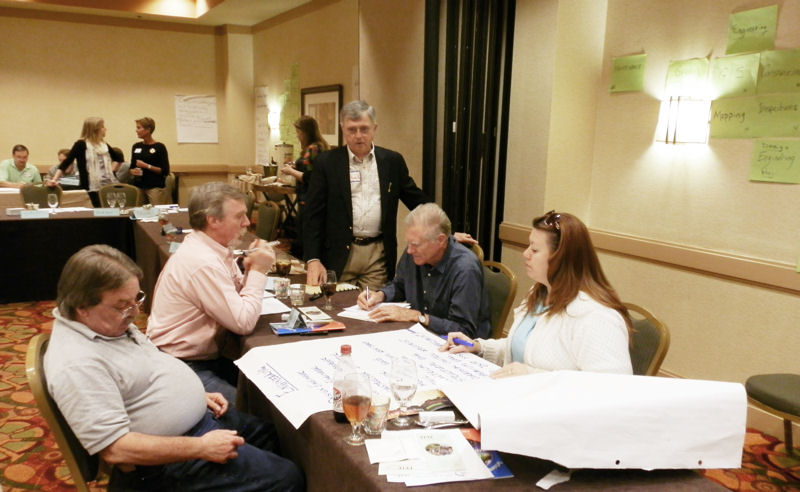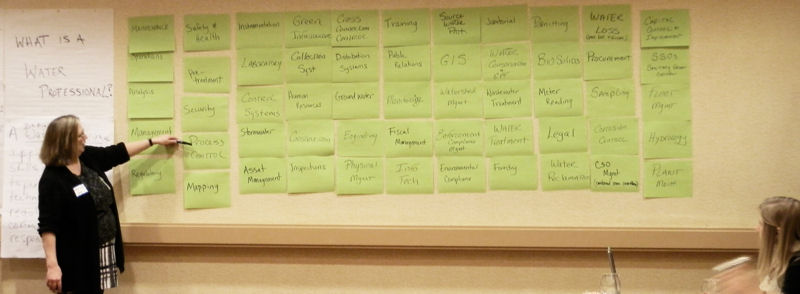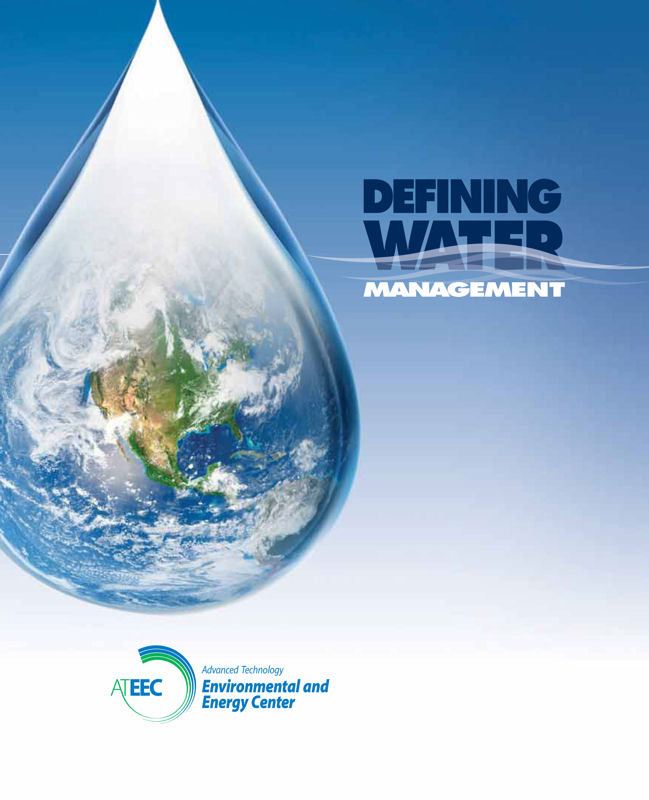Water Environment Federation (WEF; Alexandria, Va.) members have contributed to a new report that was developed to increase awareness of the critical nature of water management careers. Defining Water Management, released by the Advanced Technology Environmental and Energy Center (ATEEC; Davenport, Iowa), provides a snapshot of the wide-reaching area of water technology, said Ellen Kabat Lensch, ATEEC executive director.
With looming water challenges of pollution, scarcity, competing needs, climate change, resource security, and potential threats to environmental and public health and the economy, the National Science Foundation tasked ATEEC with conducting an occupational and needs analysis of the workers on the frontline of meeting demands for water quality and conservation, Kabat Lensch said.

Water sector professionals participate in a forum to define and expand on occupational analysis of the water management field. Photo courtesy of ATEEC.
ATEEC in collaboration with the National Partnership for Environmental Technology Education (South Portland, Maine) contacted WEF staff member Christine Radke and Association of Boards of Certification (ABC; Ankeny, Iowa) staff member Paul Bishop to help solicit water professionals to participate in a forum in early 2013, Kabat Lensch said. ATEEC hosted the forum to define and expand on occupational analysis of the water management field. It brought together 24 water sector professionals from across the country. Those participants included WEF leaders Paula Zeller and Jeanette Brown and WEF staff member Steve Harrison.
“WEF’s and ABC’s members have a reputation for high-quality practitioner expertise in a variety of areas of the water field. They represent a broad geographical area and are a natural pool of content experts to draw upon for real-world input into the training requirements of technician-level workers,” Kabat Lensch said.

Forum participants work in groups to define water professionals and the water industry and identify employment positions and educational opportunities. Photo courtesy of ATEEC.
At the forum, participants worked to define water professionals and the water industry as well as identify employment positions and educational opportunities that colleges and universities can offer to prepare a new generation to enter the industry, explained Zeller, chair of WEF’s Plant Operations and Maintenance Committee and senior plant operator at Orange County (Calif.) Sanitation District. She said she oversaw a smaller group that identified positions and educational opportunities for wastewater operator, maintenance technician, and chief operators.
“I hope that the curriculum gets developed and utilized soon for the sake of drawing people into our business before so many retire that the facilities have trouble maintaining their permits,” Zeller said. “We need people with both the field experience and the educational background to keep the public informed, maintain our working facilities, and participate in the future planning of our industry.”

ATEEC staff used results from the forum to develop the Defining Water Management Report. Photo courtesy of ATEEC.
ATEEC staff took the results from the forum to produce the Defining Water Management report. It includes definitions for water management and water professional, occupational categories, technician-level job titles in each occupational category, and specific job functions. It also identifies emerging issues and future trends and provides advice to educators on ways to contribute to the water management field, Kabat Lensch said.
The report provides a resource for counselors, educators, and students at all levels, particularly 2-year colleges and high schools, to learn about water management careers on a technician level, Kabat Lensch said. It was designed to raise awareness of these careers by students, technicians, employers, leaders of professional societies, and government officials, she said. Water industry professionals also can use the report to help create “competency-based task checklists for hiring and evaluation, and for working with community colleges and other training organizations to ensure curricula is relevant to real-world business needs,” Kabat Lensch said.
“Ultimately, the report should contribute to addressing the workforce development needs of business, industry, and government by providing educators with information needed to better inform students of professional opportunities and to develop relevant curriculum that prepares students for water management careers,” Kabat Lensch said.
— Jennifer Fulcher, WEF Highlights









October 23, 2013
Featured